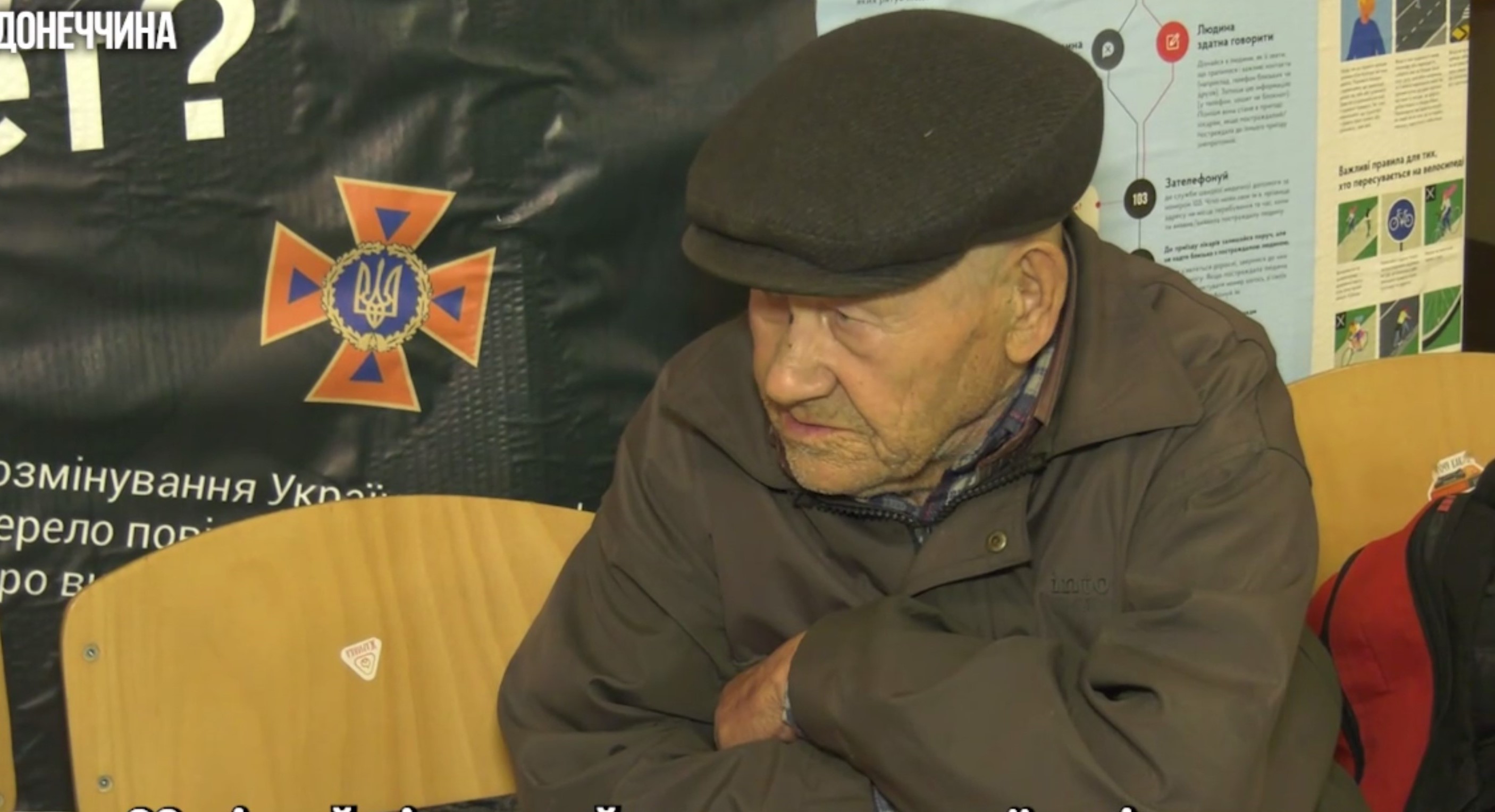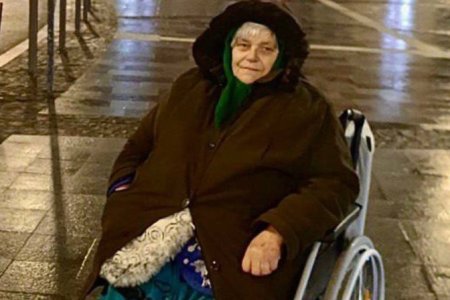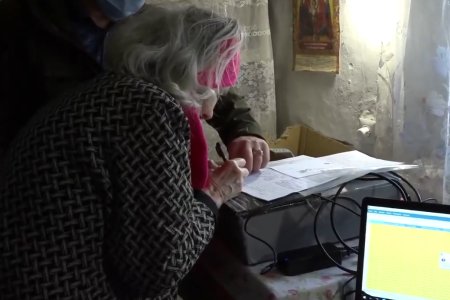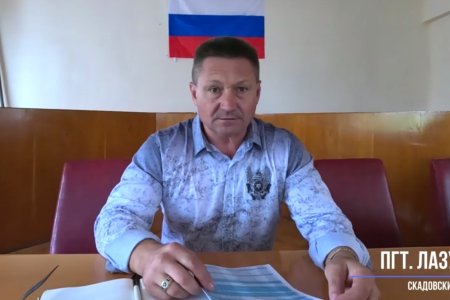
An elderly Ukrainian from occupied Donetsk oblast has been forced to leave his home in occupied Ocheretyne after the Russian invaders took his Ukrainian passport away in order to force him into accepting Russian citizenship. Instead, 88-year-old Ivan Yakovych set off for government-controlled territory, taking just his pensioner ID and a small rucksack. According to Vadym Filashkin, Head of the Donetsk Military Administration, Ivan Yakovych walked through the night to reach a crossing, though kept having to wait until shelling stopped before continuing his way.
He was picked up by volunteers from the Ukrainian NGO East-SOS who got him safely to Pokrovsk, from where he is being evacuated to a temporary shelter in Dnipro. Filashkin promises that he will be transferred to a social care establishment where he will be provided with housing and other help needed. This will, inevitably, be a very hard transition from living in his own home, and Filashkin is not alone in admiring the elderly man’s courage, civic position and love of Ukraine.
Russia is very aggressively using methods of coercion and blackmail to try to foist its citizenship on Ukrainians living in areas under occupation. None of this is new, since the aggressor state began making it next to impossible to live and work in Crimea soon after its invasion and annexation. It has, however, used measures of immense cynicism on areas that fell under its control after the full-scale invasion. Having destroyed people’s homes, livelihoods, it has often even made humanitarian aid contingent on accepting a Russian passport. In February this year, an 80-year-old wheelchair-bound woman was rescued from an occupied village in Donetsk oblast after the Russians refused to pay her a pension because she was unwilling to take Russian citizenship.
Russia is also weaponizing healthcare by refusing even insulin or other life-saving medication if the person needing them does not accept a Russian passport. As of 1 January 2024, only those who have a Russian ‘mandatory medical insurance policy’ have access to public healthcare, with such policies only issued to those who can produce a Russian passport. In occupied parts of Zaporizhzhia oblast, medics, even ambulance staff, are forced to demand that patients have such a mandatory medical insurance policy. According to an ambulance paramedic in occupied Melitopol, they were told that they could decide whether to respond to urgent calls, but that the response would not be paid if the person did not have a policy.
Other methods of forced passportization already reported here include threatening to take Ukrainians’ homes away and ‘deport’ them if they do not taken Russian citizenship. Parents have also been told that the Russians will take their children away if they do not enrol them in Russian ‘schools’, with this then made impossible unless they have Russian citizenship.
Since all such coercive measures to ‘Russify’ Ukrainians living in their own country are undoubtedly in violation of international law (the Fourth Geneva Convention, the Hague Convention of 1907 and others), it is worth stressing the very direct role played in all of this by Russian leader Vladimir Putin. His first decree on simplifying the procedure for people in occupied Donbas (the Russian proxy ‘Donetsk and Luhansk people’s republics’) was back in April 2019, with the simplified procedure shortly afterwards extended to all Ukrainians in Donbas. A month before the full-scale invasion of Ukraine, Putin tabled a new draft law on Russian citizenship which envisaged the so-called ‘change of the state border of the Russian Federation’ as grounds for obtaining Russian citizenship.
Nor is passportization an isolated part of Russia’s aggressive and, effectively, genocidal efforts to eliminate Ukrainian identity on occupied Ukrainian territory. While forcing Ukrainians to take Russian citizenship and, in many cases, sign documents claiming to ‘renounce’ their real citizenship, Russia is also removing the Ukrainian language and all that represents Ukrainian identity on occupied territory. Those who speak Ukrainian or who try to withstand the pressure to take Russian citizenship can also expect to be targeted by Russia’s FSB or other enforcement bodies.



